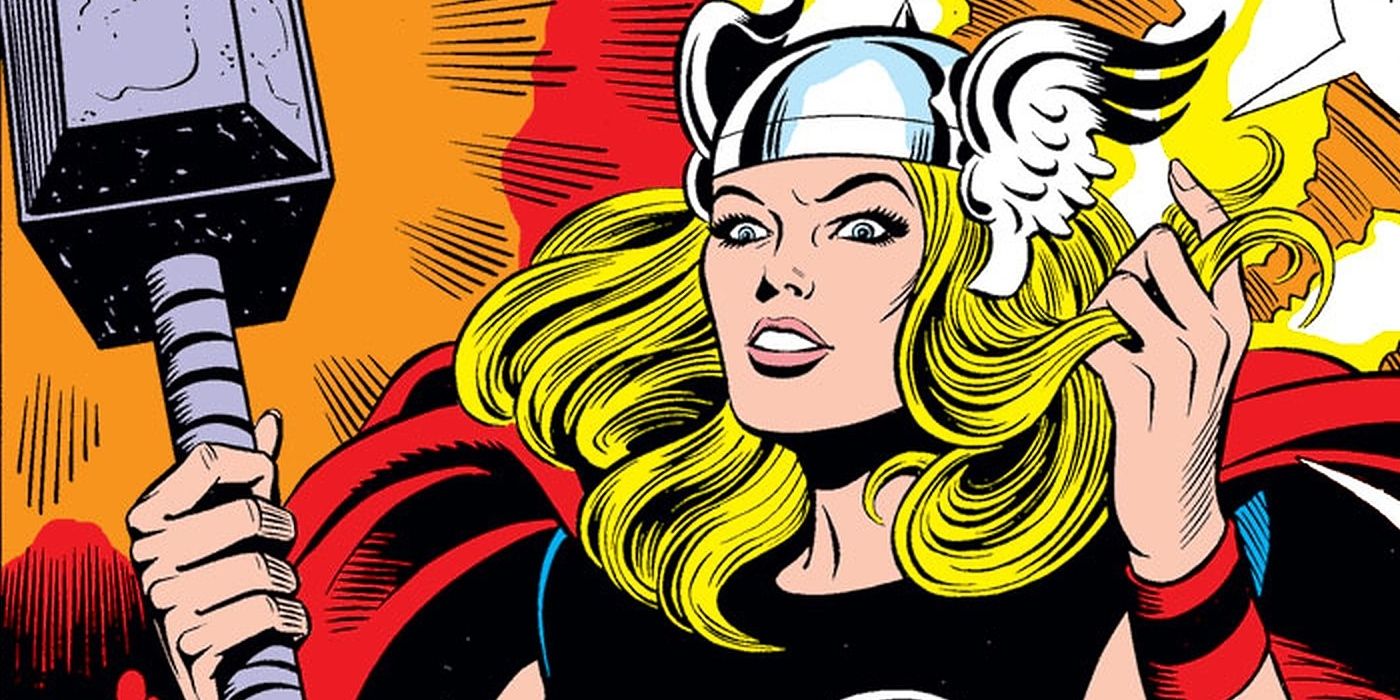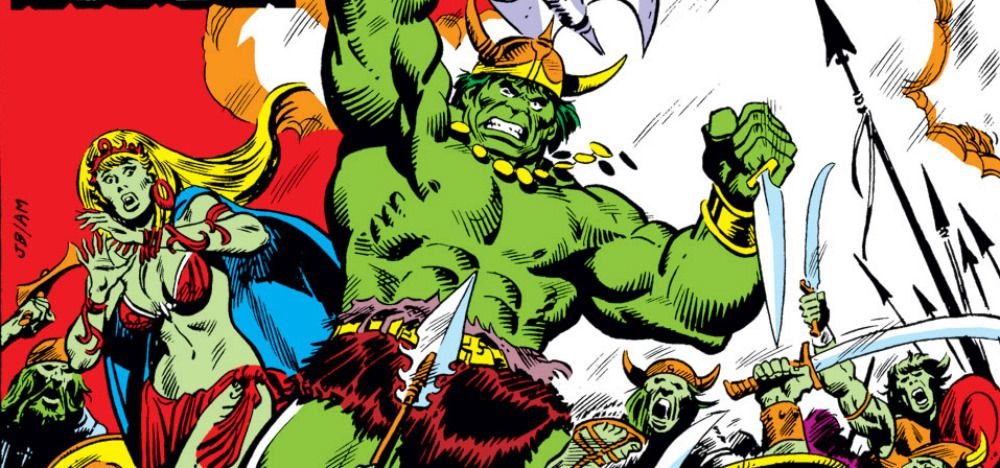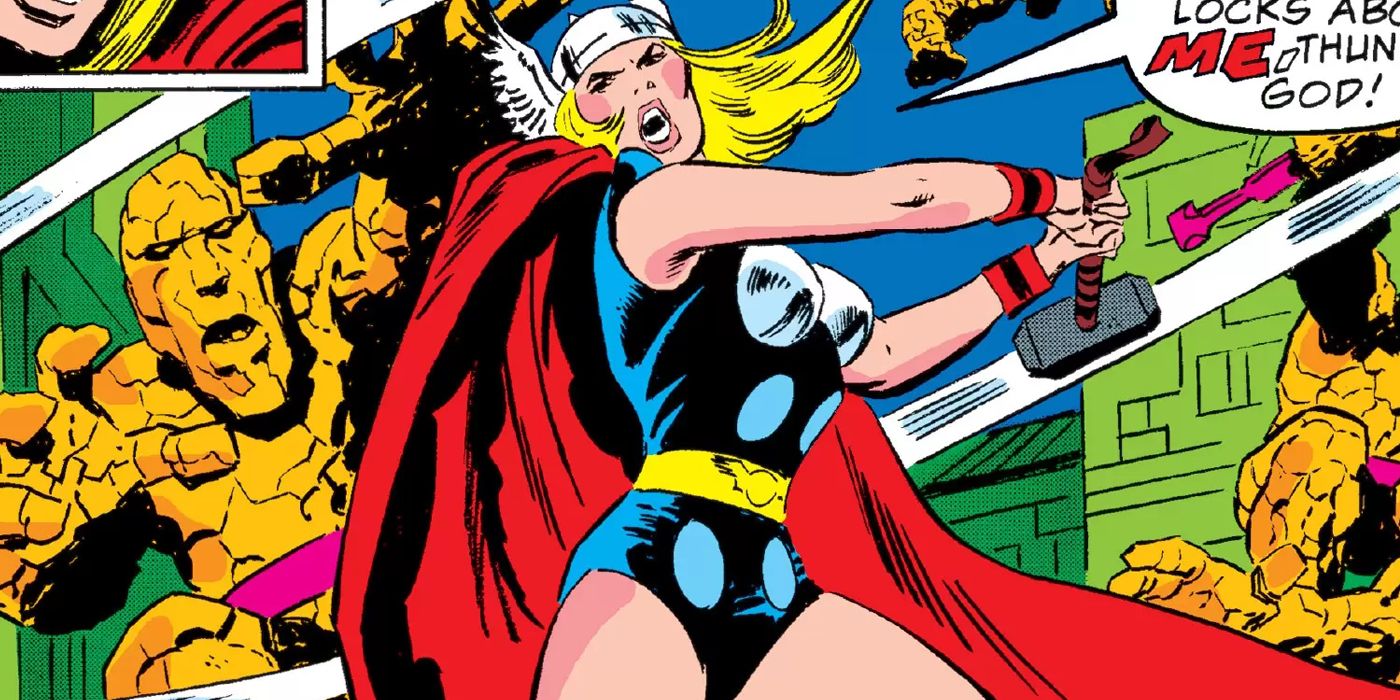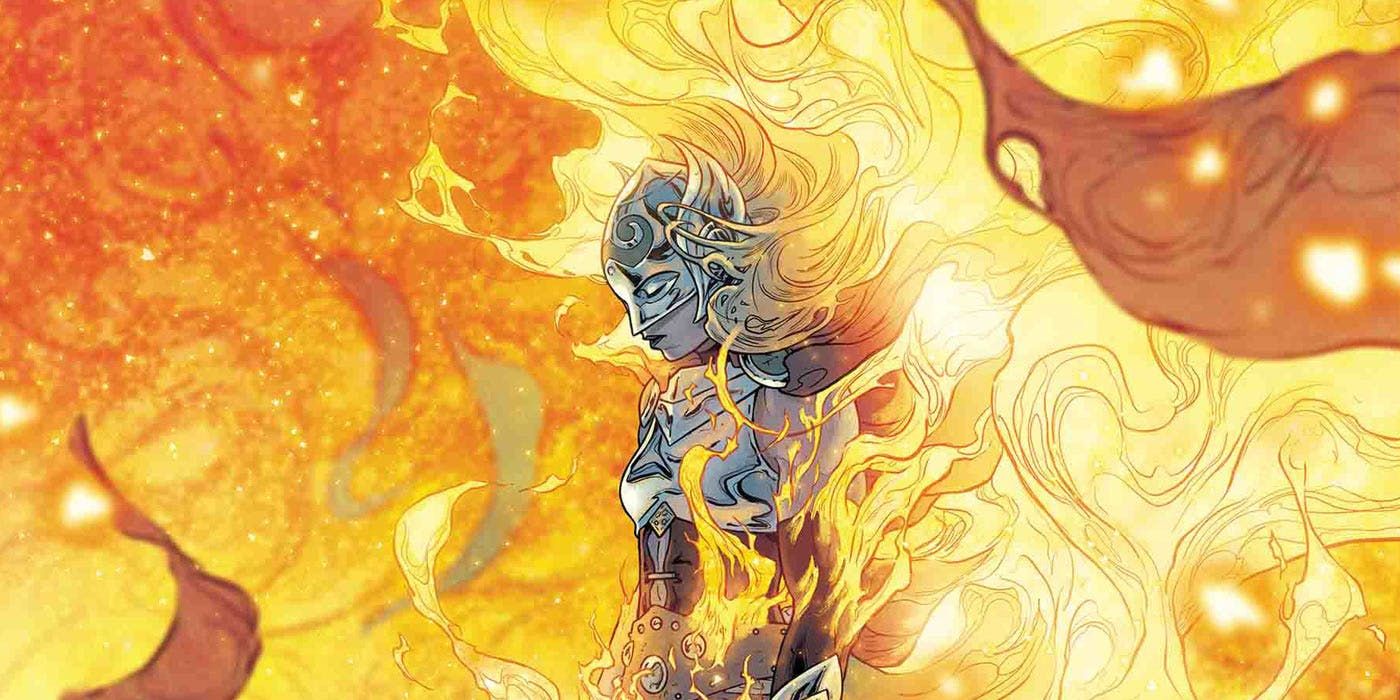
One of the most distinctive things about the Marvel Universe is how elastic it is. Characters can shift into radical new directions as stories go to unexpected places at a moment's notice. This is how we get stories like Doctor Doom trying to take Iron Man's place or even the Punisher resurrected as a Frankenstein. Some of these ideas have even been teased before, in the pages of What If?
While What If? will be heading to Disney+ as an animated streaming series soon, anthology title actually predicted a number of events that would eventually happen within the mainstream Marvel Universe, such as Spider-Man joining the Fantastic Four or the Hulk having Bruce Banner's mind.
In one of the most famous examples of that phenomenon, the original What If? series investigated an idea that would go on to define modern Thor comics. While both What If and the Marvel Universe featured Jane Foster's transformation into the God of Thunder, the idea was realized in two very different ways, which we're going to explore.
RELATED: Wonder Woman Vs Thor: Who Is Really The Stronger God?

There have been multiple What If? series over the years. The concept is simple: almost every issue of What If? is a standalone story that tweaks the events of mainstream Marvel continuity. Although some issues will explore completely new settings and versions of the superhero world, most stories within What If? focus on changing specific moments from Marvel history. Sometimes, the world is made a better place, such as the reality where Elektra was never killed by Bullseye and she ended up living a long and happy life with Daredevil. Others create horrific futures for the Marvel heroes, with villains like Set wiping out the entire universe.
Others take seemingly simple concepts and radically alter them, leading to realities that are similar to the mainstream world save for one small serious deviation. One such issue came early in the series: What If? #10 by Don Glut and Rick Hoberg, which plays with the origins of Thor. This leads to a reality where things largely play out as they did in the mainline comics, save for one major change: Jane Foster ended up marrying Odin.

What If? #10 images a world where Jane Foster accompanied Donald Blake on the trip where he was fated to find Mljnoir. Instead of him picking up Mjolnir, Jane ended up in the cave and found the staff that was secretly Thor's hammer. Deemed worthy, she's transformed into Thorsdis. She quickly saves Don, and proves incredibly adept at mastering Thor's powers. She even carves down the staff into a comb that she can hide in her purse instead of using as a cane.
Loki eventually goes to Odin and reveals that Thor has made their appearance known on Earth. Summoning Thordis to Asgard, Odin is enraged that it's not his son. Thordis returns to Earth and becomes just as much of a hero as Thor was, even becoming a founding Avenger. Meanwhile, she drifts apart from Donald Blake. Sif visits Blake and cures him of his limp, allowing him to help fight off Loki when he attacks them. Blake quickly falls in love with Sif, and accompanies the pair to Asgard to take part in fighting back against Ragnarok. In the end, the Asgardians win the day and Loki is banished from Asgard.
This is where the comic gets a little... weird. After the battle, Odin takes Mljnoir from Jane and presents it to Blake. This reverts him to his true form as Thor. But as a reward for her valor, Odin makes Jane into a goddess in her own right. Thor and Sif are reunited, and a heartbroken Jane remains in Asgard, where she falls in love with Odin.
This bizarre turn of events means that Thor and his dad both end up falling in love with the same woman, who spends most of the issue as a female version of Thor. Coupled with scenes like the Avengers all openly gawking at her and Loki at one point specifically commenting on her "beautiful eyes," the story has not aged well in terms of gender politics.

Things played out much differently in the mainstream Marvel Universe. After Thor was deemed unworthy to wield Mjolnir following the Original Sin crossover, the hammer went unused until Jane Foster proved to be worthy to wield it and took it for herself.
As a female version of Thor, Foster quickly proved herself a capable version of the God of Thunder in a run masterminded by Jason Aaron. She even fought off the attacks of a furious Odin and earned her place among the Avengers. However, the use of the hammer had a negative effect on Jane's health: suffering from cancer, each transformation into Thor essentially weakened her body and undid the effects of her chemotherapy. Being Thor was literally killing Jane.
RELATED: Marvel Studios' What If? Will Feature Voices Of Nearly All MCU Actors
Jane joins the Congress of Worlds as the representative of Midgard, and even briefly begins a romance with her fellow Avenger Sam Wilson aka Captain America. She continues her work as Thor until she's on the brink of death. Despite the risk, she transforms once more to help battle Mangog. She's forced to sacrifice Mljnoir by throwing it into the sun to stop the monster and reverts to Jane just in time to die. However, a humbled Odin uses his powers to help restore Jane to life.
After recovering from cancer and becoming a major character in the current Marvel landscape, Jane then played an important role in War of the Realms, even being named Queen by Freja before she goes into battle. Briefly claiming the hammer of the War Thor, Jane was able to turn back into Thor for the final battle against Malekieth and his forces. She's even become the new Valkyrie in her own series.
While the mainline Thor starts from the same concept as What If? #10, it goes in a completely different, and much more epic direction. While Natalie Portman is set to appear in the upcoming Thor: Love & Thunder as Jane Foster, specifically as one who gains the powers of Thor for herself, it's far, far more likely that the Marvel Cinematic Universe is taking cues from the Aaron run instead of the What If? issue that predicted it.
Add Comments